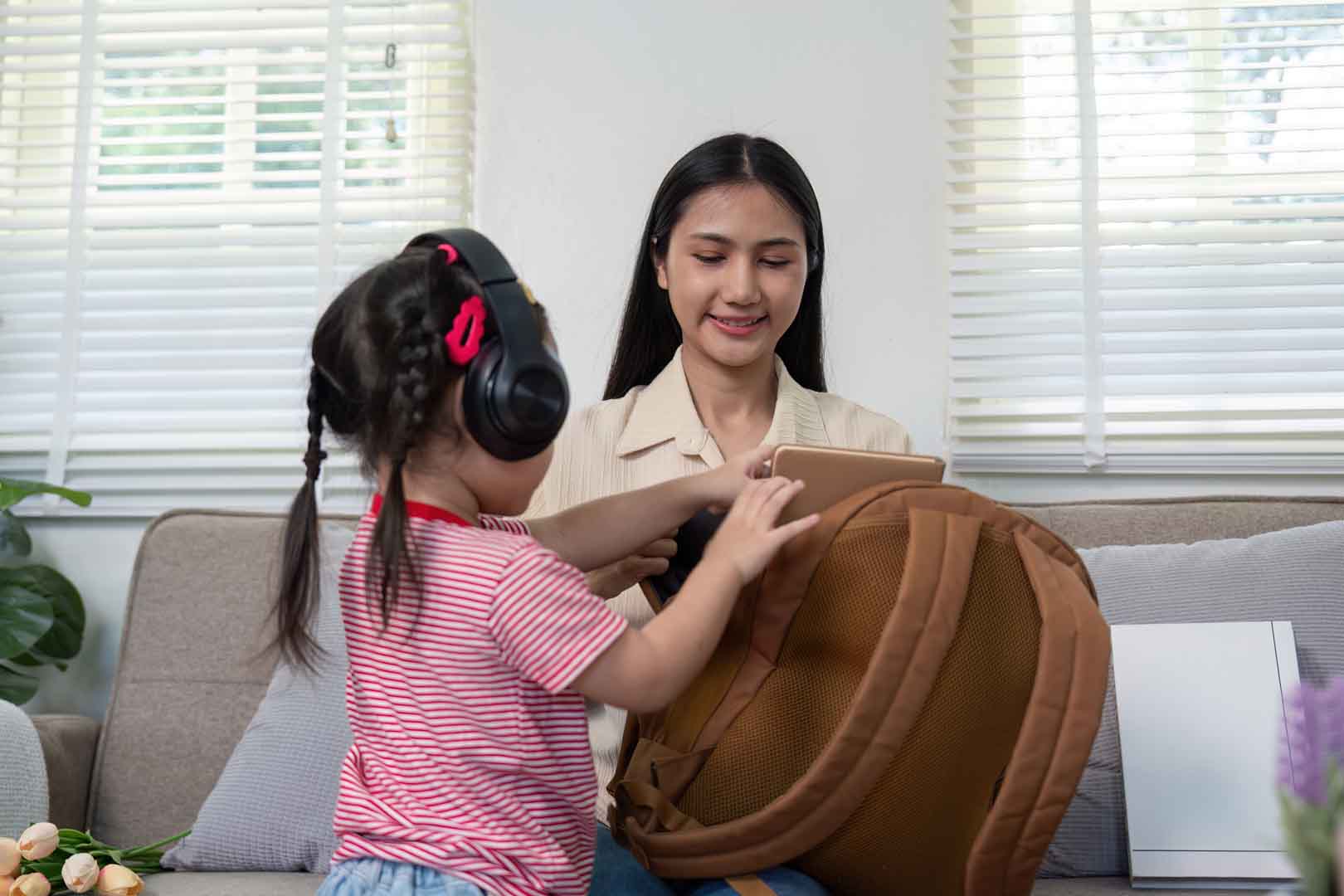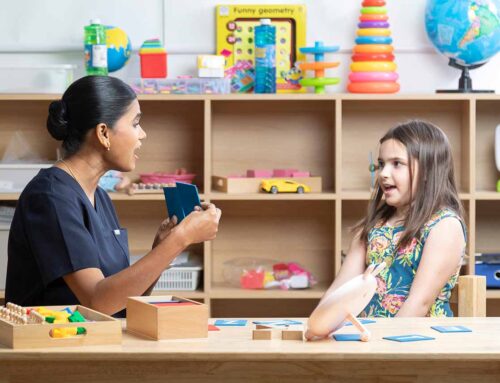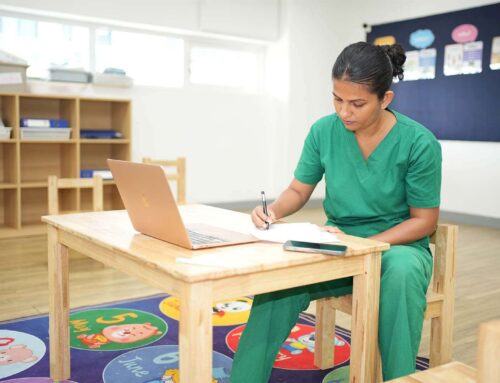Many children in Phnom Penh are highly sensitive to sound—often reacting strongly to everyday noises like fans, traffic, or group conversations. This sensitivity, known as auditory defensiveness or auditory hypersensitivity, can interfere with learning, communication, and behavior. At OrbRom Center, we work with children who experience these challenges, using speech therapy techniques that support communication while respecting their sensory needs.
One child wearing noise-canceling headphones isn’t just blocking out sound—they may be trying to cope with an environment that feels overwhelming. Through thoughtful, individualized support, we can help these children thrive.
What Is Auditory Sensitivity?
Auditory sensitivity is a condition where the brain overreacts to certain sounds. While the hearing ability is typically normal, the way the brain processes sound can trigger:
-
Discomfort or fear of common noises
-
Difficulty focusing in noisy settings
-
Speech delays due to sound avoidance
-
Overreactions like covering ears or tantrums
-
Communication withdrawal in loud environments
These challenges are common in children with autism, sensory processing disorder, and ADHD, though they can also occur independently.
How Auditory Sensitivity Affects Speech Development
Children who are uncomfortable with sound often struggle to:
-
Participate in classroom conversations
-
Focus on speech or language instruction
-
Hear and imitate speech sounds accurately
-
Engage in group play or social interactions
In Phnom Penh, some families assume their child is “shy” or “difficult,” when in fact the issue may be auditory overstimulation. Left unaddressed, this can delay speech development and social confidence.
How OrbRom Center Supports Children with Auditory Sensitivities
At OrbRom Center in Phnom Penh, we use a sensory-informed speech therapy approach. This means we design environments and therapy sessions that reduce stress and support progress. Our methods include:
-
Gradual sound exposure using controlled audio exercises
-
Noise-reducing tools like headphones or quiet corners
-
Visual aids and gestures to support communication
-
Calm, rhythmic speech to reduce auditory overload
-
Parent training for creating sound-friendly routines at home
We also collaborate with occupational therapists to develop a comprehensive sensory plan that addresses the child’s unique needs.
You can visit our location via this Google Maps link.
Tips for Phnom Penh Parents
If your child covers their ears often or avoids noisy places, try:
-
Offering noise-canceling headphones during busy times
-
Speaking softly and calmly
-
Avoiding sudden loud noises or music at home
-
Using pictures or sign language when speaking isn’t possible
-
Seeking professional evaluation for a tailored therapy plan
With consistent support, children with auditory sensitivities can learn to communicate more effectively and confidently.
Final Thought
Noises that seem small to us can feel enormous to a sensitive child. At OrbRom Center in Phnom Penh, we create safe, quiet, and empowering spaces for children who need extra care when it comes to sound. Through sensory-friendly speech therapy, we help them tune in to their voice—one peaceful step at a time.
We are the only Preschool specialized on children with special needs in PhnomPenh.
- Internationally qualified teachers
- Cambodia’s largest sensory room
- Outdoor swimming pool
- Covered outdoor playground📞 Phone: 077.455.993
Telegram Link: https://t.me/OrbRom






